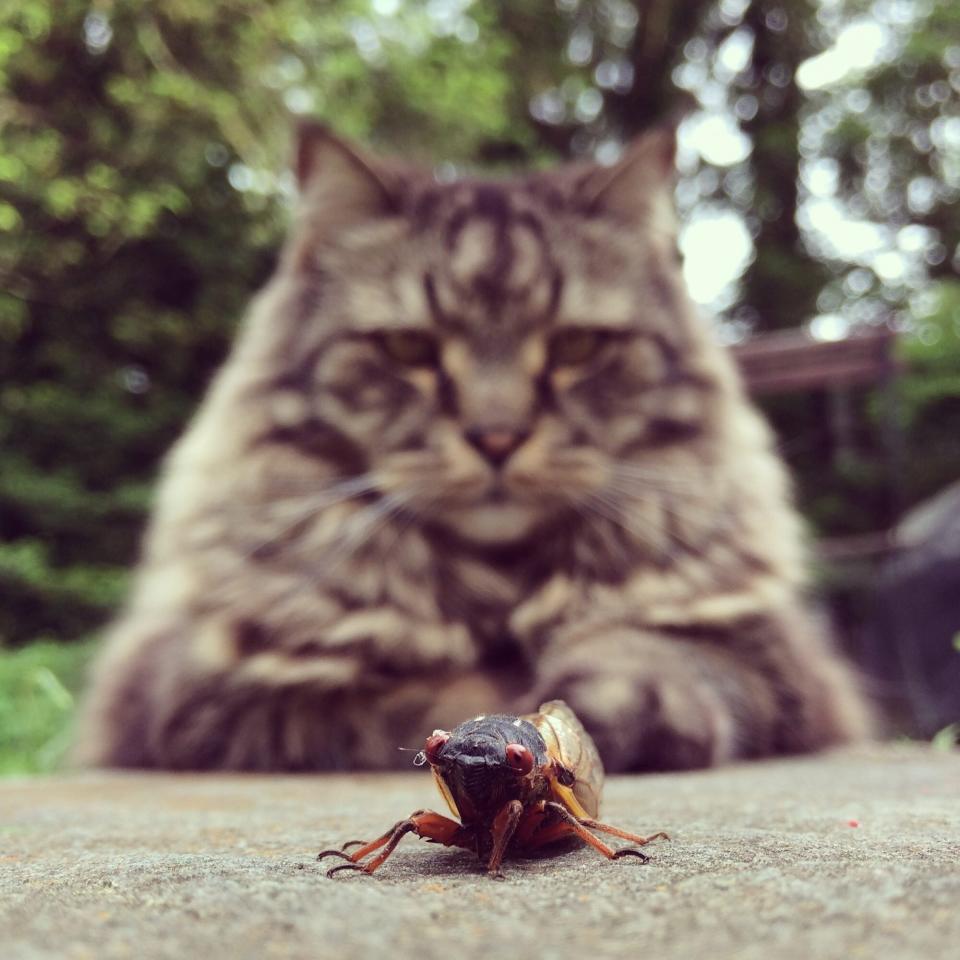It's OK if Your Pets Eat Cicadas… In Moderation
Wild turkeys gorging on cicadas = good. Household pets gorging on cicadas = bad.
As if the noise weren't enough to contend with, the Brood X cicadas currently blanketing a large portion of the United States also pose a particular struggle for pet parents.
It seems that many cats and dogs are under the impression that they've been invited to an all-you-can-eat cicada buffet. Sorry to be the bearers of bad news, but that's not exactly the case.
While cicadas themselves are not toxic, the fact that they're not a part of your pet's regular diet can cause gastrointestinal upset. It's not common, but they can also cause allergic reactions in your furry friend.
"Also, rarely, ingestion can cause possible allergic reactions which would present as facial swelling, diffuse body hives and itching and if more severe of a reaction, fever, vomiting, and diarrhea," Dr. Nita Vasudevan of Peachtree Creek Animal Hospital in Atlanta told NPR.

Cyndi Monaghan/Getty Images
That's not to say that you should be worried if your cat or dog manages to sneak the occasional crunchy snack.
"In most cases, your dog will be fine after eating a few cicadas," Dr. Jerry Klein, American Kennel Club chief veterinary officer, explained in a blog post. "However, dogs that gorge on the large, crunchy insects will find the exoskeleton difficult to digest and can suffer serious consequences."
According to Dr. Vasudevan, the sharp parts of these cicadas can possibly cause GI perforations in pets that eat too many.
"A few ingested likely will be harmless, but we always worry about the quantity ingested over a short period of time," she told NPR.
You can help your pets avoid temptation by limiting time outdoors, especially in areas where cicadas congregate. When you do take them outside, keep them on a short leash or under close supervision.
Fortunately, Brood X cicadas will only be around for a few more weeks. In the meantime, keep an eye on those fur babies!

